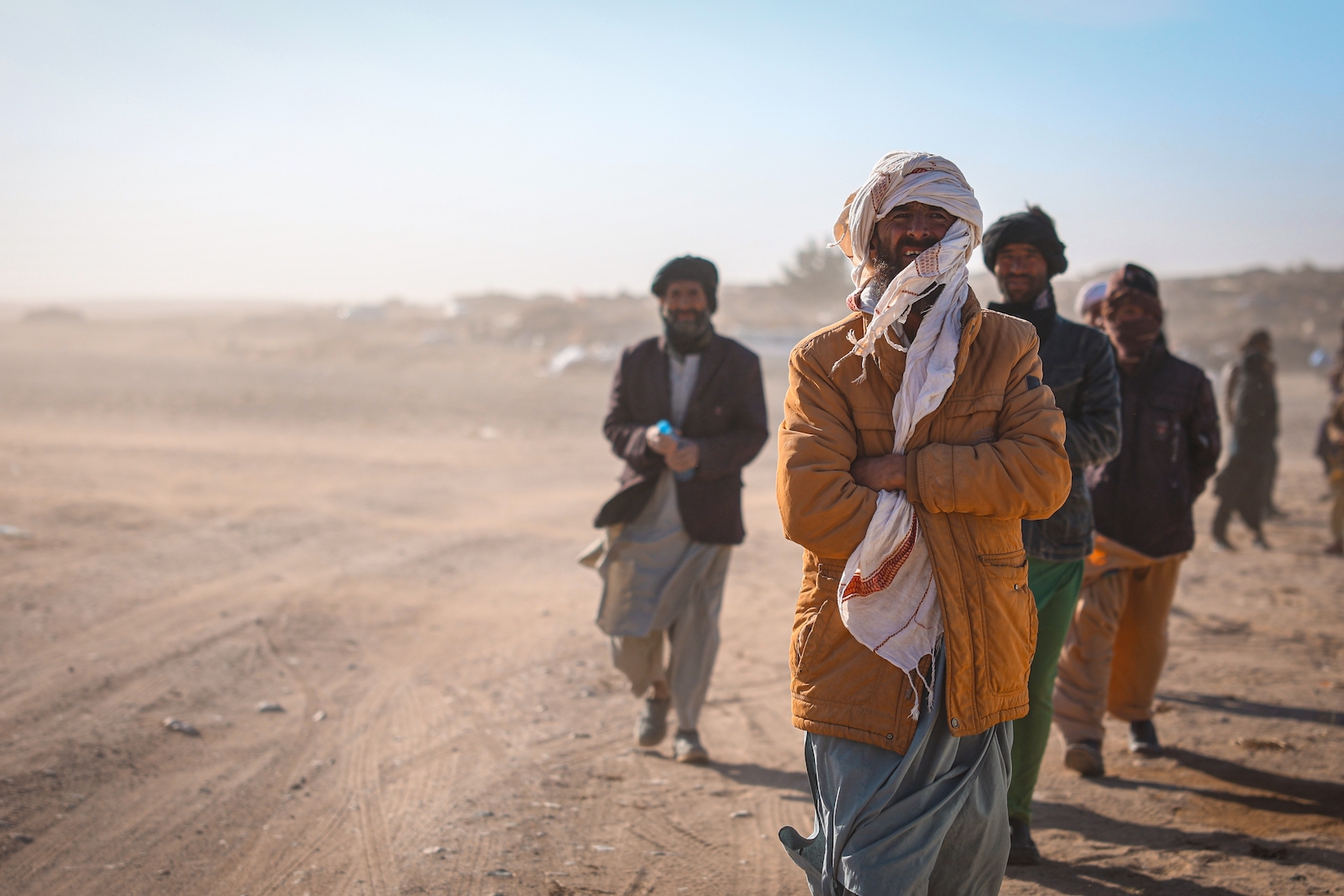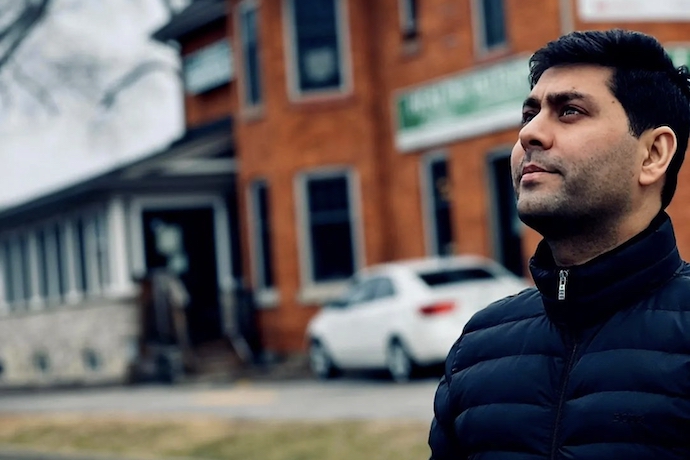
Media
Journalism in Peril: Said Najib Asil on Supporting Afghan Journalists
Said Najib Asil, president and CEO of Free Speech Hub, has steadfastly advocated for Afghan journalists and the broader cause of press freedom. Founded in 2019, the organization, after facing disruptions, resumed its vital work from Toronto on May 1, 2023. Its mission is multifaceted: connecting Afghan journalists across the globe, documenting the precarious conditions of the press under Taliban rule, and offering crucial mentorship and support systems, including mental health services.
Despite the Taliban’s draconian restrictions and the immense economic pressures bearing down on the media landscape, many journalists continue their work, undeterred by the considerable risks. They face a litany of threats—imprisonment, harassment, and violence—with executions becoming a grim reality for some. Reports paint a harrowing picture of torture and other forms of targeted abuse, underscoring the perilous conditions journalists endure to tell their stories.
For Asil, Free Speech Hub’s work represents more than advocacy; it is a lifeline. The organization remains committed to safeguarding journalists and championing their right to report freely, no matter the odds.
Scott Douglas Jacobsen: One year later, we’re speaking again with Said Najib Asil, who now serves as the president and CEO of Free Speech Hub.
To start, could you outline the foundation of Free Speech Hub? What does it offer for Afghan journalists—whether they fled the country abruptly or managed to leave lawfully before the Taliban’s return to power?

Said Najib Asil: Thank you so much. Free Speech Hub is a non-profit organization that supports Afghan journalists and advocates for press freedom and freedom of speech in Afghanistan. The organization was established in 2019 in Afghanistan with a board of 15 media managers. Unfortunately, after August 15, 2021, and the fall of Kabul, all members of Free Speech Hub’s board of directors left and relocated to different countries.
After three years, we resumed our operations in Toronto. Today, we focus on the state of media in Afghanistan and the journalists now in countries such as Iran, Pakistan, and Turkey. Approximately 7,000 Afghan journalists left the country after the fall of Kabul and are currently living in various countries around the world.
Through Free Speech Hub, we are working to unite these journalists and create a more strategic response to support freedom of speech and expression in Afghanistan. We are in touch with journalists within Afghanistan and in neighboring countries such as Pakistan and Iran, as well as in countries like Canada, the United States, and European countries. The situation has drastically changed since August 15, 2021, when the Taliban regained power for the second time.
Before that, after 2001, when the U.S. and around 40 other countries were present in Afghanistan, the country’s media and freedom of speech situation was significantly better. Over the past two decades, over 600 media outlets, including TV stations, radio stations, and newspapers, were established across the 34 provinces of Afghanistan, engaging around 10.000 to 12,000 journalists nationwide. Based on surveys conducted by international organizations, Afghanistan was considered one of the most accessible countries in terms of freedom of expression and press freedom, outperforming China, Pakistan, India, and Iran.
These were significant achievements for Afghanistan’s media over the past two decades. However, since the Taliban regained power, more than 7,000 journalists have left the country. Ninety percent of Afghan women journalists lost their jobs or can no longer pursue their passion. The Taliban now use the media outlets that are still operating in Kabul and other provinces as propaganda tools for their agenda. The concept of free speech or press freedom no longer exists in Afghanistan. This is the dire reality under the Taliban regime. Over the past three years, more than 300 Afghan journalists have been beaten, harassed, and tortured.
This is the overall bigger picture for Afghanistan. Through Free Speech Hub, we are in touch with journalists based in Kabul and other provinces. We document what’s happening in the country daily and provide reports on what’s happening regarding freedom of speech and expression in Afghanistan.
We also work with journalists in countries like Pakistan, Iran, and Turkey, where around 700 Afghan journalists reside. They still await long-term protection and resettlement from various countries and organizations. We work with these journalists, advocate on their behalf, and connect them with international support organizations for journalists.
We are drafting letters to these organizations and working with embassies and ambassadors of these countries to explore how we can bring these journalists to safety and secure long-term protection. In countries like Canada and others, we are working with journalists, especially those connected to media organizations established over the past three years. We provide courses and mentorship programs and connect them with mental health professionals to support them. After arriving in new countries, many of these journalists need help to continue their work in journalism.
Some of them have taken on labor-intensive jobs, such as working in construction, driving for Uber, or other service roles. However, we are trying to reconnect them with media organizations in various countries.
Over the past ten months, we have seen several achievements in Canada. We organized three conferences in Toronto. We held a conference in partnership with the Dashty Foundation in the Canadian Parliament, where we invited MPs, senators, and ambassadors from the Netherlands and Australia, as well as permanent residents of Canada, the Canadian ambassadors to the United Nations, and Afghan journalist activists for a one-day conference. We highlighted the current situation in Afghanistan and urged the Canadian government and other countries to extend support for the future of Afghanistan.
Through these conferences, we aim to push governments to provide safety for Afghan media and journalists, especially given the daily challenging circumstances that many journalists face. These are some initiatives we are working on through Free Speech Hub.
Jacobsen: You’ve mentioned reports of torture—specifically 300 documented cases. What forms of torture are these journalists enduring? What kinds of stories are emerging?
Asil: We have documented 300 cases through international media support organizations. When we connect with journalists inside Afghanistan, they share that the Taliban imposes strict restrictions on critical topics that journalists are prohibited from covering, such as security issues, the national budget, and stories involving women, freedom of movement, and freedom of speech. These issues are among journalists’ biggest concerns; they cannot work or report on them independently.
When some journalists are reporting stories for exiled media from Afghanistan, the Taliban, along with security organizations, imprison these journalists and exercise complete control over them. We have received several accounts detailing very different experiences, where journalists have shared their stories and even pictures showing the torture and beatings they endured at the hands of the Taliban.
Jacobsen: What about executions?
Asil: We do not have any specific cases involving journalists, but overall, executions are occurring daily in different parts of the country.
Jacobsen: Some courageous individuals—names withheld for their safety—are practicing what can only be described as guerrilla journalism, operating covertly within Afghanistan to evade Taliban surveillance. What words of encouragement would you share with those risking their lives under a theocratic regime? These individuals, whether secular or moderate, continue to uphold the principles of a free press.
Asil: As I mentioned, Afghan journalists have accomplished a great deal over the past two decades. Many journalists inside the country want to cover different stories freely. However, the Taliban imposed extensive restrictions, preventing them from doing so.
Despite this, some journalists continue to report, albeit in secrecy. They must hide their identities and cannot openly oppose the Taliban. Suppose the Taliban identifies any critical reports from a media organization. In that case, they immediately contact the news manager, the media organization, and the journalist directly, often resulting in the journalist’s immediate imprisonment. This makes the situation highly challenging for journalists.
Many journalists want to continue their work but need help overcoming severe obstacles. Additionally, most journalists are under significant financial pressure. They need employment to cover their daily expenses, pay bills, and support their families. The media industry often becomes their only viable job option, regardless of the content the media organizations produce and distribute to the public.
Journalists remain in the profession not only for their passion but out of economic necessity, to receive a salary that helps sustain their lives and those of their families. This financial situation is another significant challenge Afghan journalists face. Conversations with journalists reveal that they understand and value the principles they stand for but acknowledge that current conditions make it impossible to uphold them fully.
Pushing journalism in Afghanistan means addressing these economic realities. Salaries are vital for journalists to pay their bills and support their families. The financial strain compounds their challenges, making the profession difficult and dangerous.
Jacobsen: Thank you again.
Asil: Thank you so much.
